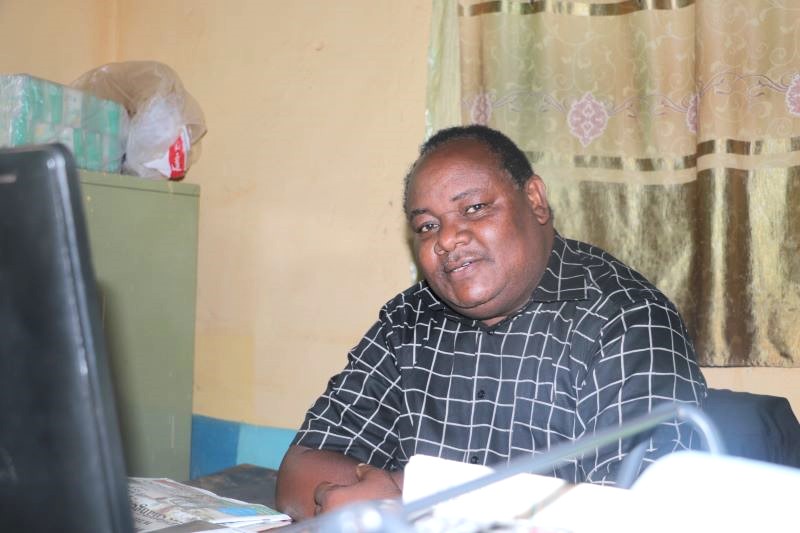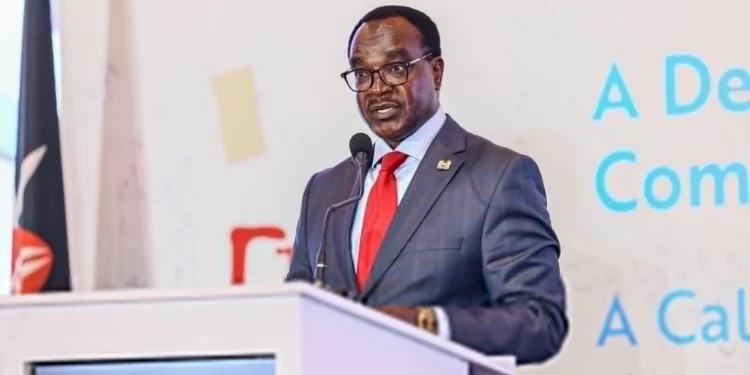In a significant push for educational equality, the Kenya Secondary Schools Heads Association (KESSHA) in Machakos County is spearheading efforts to bridge the digital divide between urban and rural schools.
In an exclusive interview with Education News, the association’s chair for Machakos Stephen Kavuvu, discussed the challenges and ongoing initiatives shedding light on the steps being taken to ensure all students have equal access to technology and quality education.
Kavuvu who also serves as the Principal Syokisinga CEB Secondary School in Yatta, acknowledged that one of the primary challenges in rural areas is the lack of access to electricity, which hampers the effective use of digital tools in education.
“We advise schools to invest in projectors and internet but many schools in rural areas still operate without reliable electricity, making it difficult to implement ICT programmes, additionally, the shortage of computers and the condition of classroom facilities further exacerbate the digital divide,” he said.
To combat these issues, KESSHA has devised strategic measures aimed at providing rural schools with the necessary infrastructure and resources.
Among the measures named include securing partnerships with Non-Governmental Organizations (NGOs) to equip schools with ICT centers.
“Bridging the digital gap is not just about bringing technology to rural schools. It’s about empowering our children to compete on a global stage,” Kavuvu emphasized.
READ ALSO:
By integrating technology into the curriculum, he noted that KESSHA aims to provide students with the skills needed to thrive in a digital world. The association is also advising schools to prioritize technology investments within their budgets, recognizing the long-term benefits for students’ education and future employment opportunities.
Despite the challenges, Kavuvu remains optimistic about the future of education in Machakos and advocated for the Kaizen philosophy, which emphasizes continuous improvement.
“We are committed to refining our strategies to enhance educational standards. This philosophy underpins KESSHA’s approach to problem-solving and ensures that efforts to bridge the digital divide are ongoing and adaptive to new challenges and opportunities,” he said.
Kavuvu highlighted the importance of collaboration with all stakeholders, including government bodies, educational institutions, parents, and the broader community.
“Collaboration is crucial to achieving our goals. By working together, we can overcome the obstacles and create a more equitable education system,” he stated. The association is actively seeking support from various sectors to bolster its initiatives and ensure that progress is sustainable.
He also noted that other pressing issue is the understaffing of teachers, particularly in sub-county schools where most educators are employed on Board of Management (BoM) contracts.
“These teachers often face job insecurity and lack the support they need to deliver quality education,” Kavuvu noted. The association is advocating for more permanent teaching positions to stabilize the workforce and improve educational outcomes.
Moreover, the late disbursement of capitation funds from the government has significantly impacted school operations.
“Delayed funding cripples our ability to implement essential programmes and maintain school facilities,” Kavuvu pointed out while calling for timely disbursements to ensure schools can function smoothly and meet their operational needs.
By Agnes Orang’o
You can also follow our social media pages on Twitter: Education News KE and Facebook: Education News Newspaper for timely updates.
>>> Click here to stay up-to-date with trending regional stories






